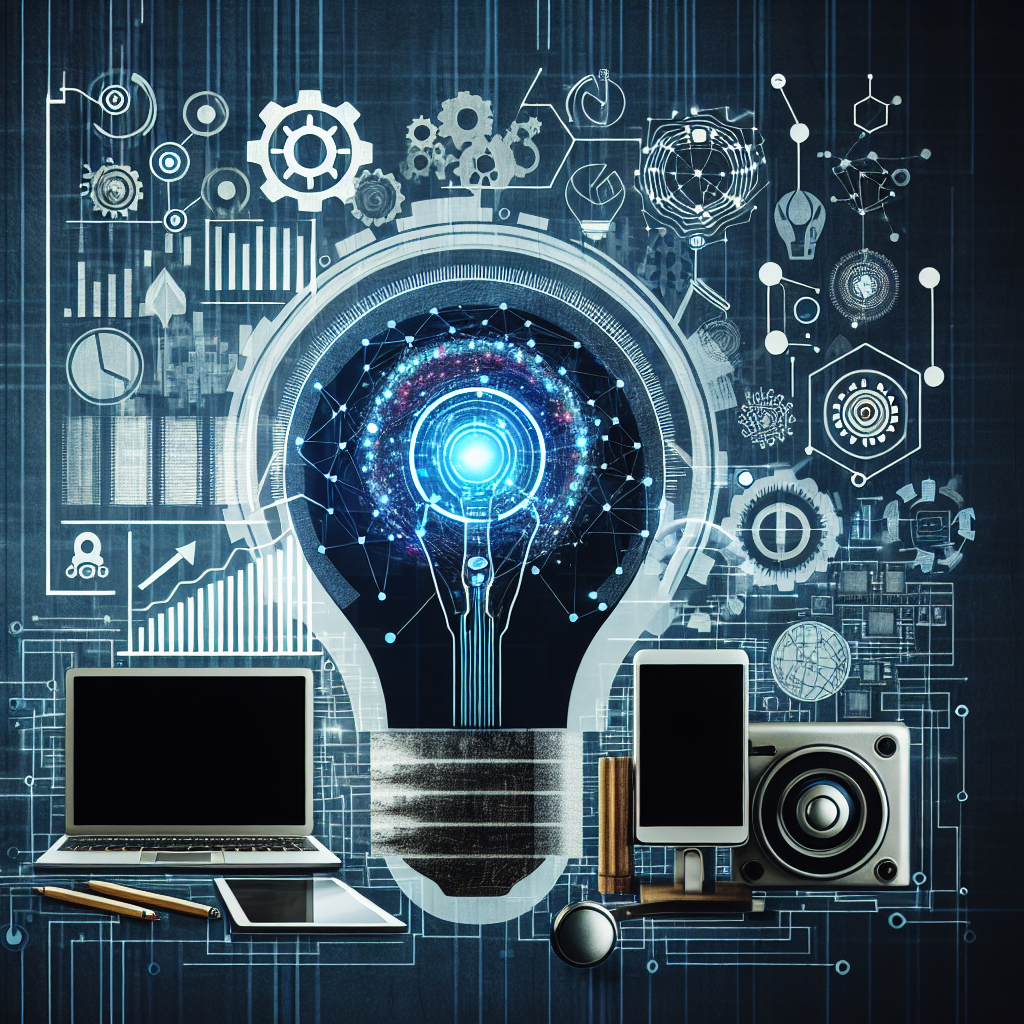Artificial Intelligence (AI) is rapidly transforming the world we live in, with implications for nearly every industry and aspect of society. From healthcare to transportation to entertainment, AI is revolutionizing the way we work, play, and interact with the world around us. As AI technology continues to advance at a rapid pace, many are left wondering what the future holds for AI development. In this article, we will explore the latest trends in AI development and make predictions about where the field is headed in the coming years.
Trends in AI Development
1. Increased Automation: One of the biggest trends in AI development is the increasing automation of tasks that were once performed by humans. From self-driving cars to automated customer service bots, AI is being used to streamline processes and increase efficiency in a wide range of industries.
2. Improved Natural Language Processing: Natural language processing (NLP) is an area of AI that focuses on enabling computers to understand and interact with human language. Recent advancements in NLP have led to the development of virtual assistants like Siri and Alexa, which are becoming increasingly sophisticated in their ability to understand and respond to human speech.
3. Enhanced Machine Learning: Machine learning is a subset of AI that allows computers to learn from data and improve their performance over time. Recent developments in machine learning algorithms have led to significant improvements in areas like image recognition, predictive analytics, and autonomous decision-making.
4. Ethical AI: As AI technology becomes more prevalent in society, there is a growing concern about the ethical implications of its use. From bias in algorithms to privacy concerns, ethical considerations are becoming a key focus in AI development. Companies and researchers are working to ensure that AI systems are developed and deployed in a responsible and ethical manner.
Predictions for the Future of AI Development
1. Continued Growth in AI Applications: As AI technology continues to advance, we can expect to see a growing number of applications in a wide range of industries. From healthcare to finance to education, AI will play an increasingly important role in shaping the future of work and society.
2. Personalized User Experiences: AI technology is enabling companies to provide more personalized and tailored experiences for their customers. From personalized product recommendations to targeted marketing campaigns, AI is helping businesses better understand and engage with their customers on an individual level.
3. Enhanced Healthcare Solutions: AI has the potential to revolutionize the healthcare industry by enabling more accurate diagnoses, personalized treatment plans, and improved patient outcomes. AI-powered tools are already being used to analyze medical imaging, predict disease progression, and assist in surgical procedures.
4. Greater Automation in the Workplace: As AI technology becomes more sophisticated, we can expect to see an increase in automation in the workplace. Tasks that were once performed by humans, such as data entry, customer service, and even creative writing, will be increasingly automated by AI systems.
5. Continued Focus on Ethical AI: As AI technology becomes more advanced and pervasive, there will be an increasing focus on ensuring that AI systems are developed and deployed in an ethical and responsible manner. Companies and governments will need to work together to establish guidelines and regulations to ensure that AI is used in a way that benefits society as a whole.
FAQs
Q: Will AI replace human jobs?
A: While AI has the potential to automate many tasks currently performed by humans, it is unlikely to completely replace human jobs. Instead, AI is more likely to augment human capabilities and enable workers to focus on more complex and creative tasks.
Q: Is AI biased?
A: AI systems can be biased if they are trained on biased data or if their algorithms are not designed to account for bias. It is important for developers to be aware of potential biases in AI systems and take steps to mitigate them.
Q: What are the ethical implications of AI?
A: The ethical implications of AI are vast and complex, ranging from privacy concerns to issues of bias and discrimination. It is important for companies and researchers to consider the ethical implications of their AI systems and work to ensure that they are developed and deployed in a responsible manner.
Q: How can I learn more about AI?
A: There are many resources available for learning more about AI, including online courses, books, and workshops. Additionally, many universities offer degree programs in AI and related fields for those interested in pursuing a career in the field.
In conclusion, the future of AI development is full of promise and potential. As AI technology continues to advance, we can expect to see a wide range of applications in nearly every industry and aspect of society. From personalized user experiences to enhanced healthcare solutions, AI is poised to revolutionize the way we live, work, and interact with the world around us. It is important for companies, researchers, and policymakers to work together to ensure that AI is developed and deployed in a responsible and ethical manner that benefits society as a whole.

